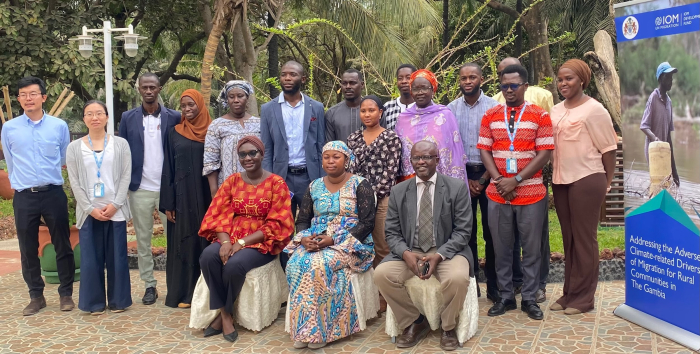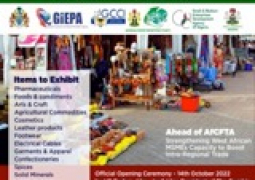
Sukai B. Cham, Programme Officer for IOM’s Migration Management Unit, said the initiative seeks to address the adverse effects of climate change on vulnerable communities by building resilience, promoting sustainable development, and protecting the rights of those affected.
“This project is a concrete step towards mitigating the consequences of climate-induced environmental degradation and displacement.” she noted.
She noted that the 24-month project would work closely with local authorities and communities in three climate-vulnerable regions and activities would include climate vulnerability assessments, the development of gender-sensitive adaptation frameworks, green livelihood initiatives, and the promotion of inclusive, community-based solutions.
The project, she said, also aligns with national policies such as the Gambia’s National Migration Policy (2020–2030), the Green Recovery Focused National Development Plan (2023–2027), and the Long-Term Climate Neutral Development Strategy (2050).
Fabba Jammeh, Director of Investment and Industrial Development at the Ministry of Trade, highlighted that environmental factors often overlooked in migration debates.
“Sometimes we ignore environmental causes, but they are central to the migration story. This project aims to restore what’s been lost and provide alternatives to those forced to leave,” he stated.
Jammeh emphasized spoke her Ministry’s commitment to ensuring the project enhances employment opportunities and supports the coordination role of the Ministry of Environment.
“We are the brain of the project and will ensure proper implementation, impact tracking, and accountability,” he affirmed.
Mariama Ndow-Jarju, Director of the Central Project Coordination Unit, who represented the Ministry of Environment, explained how climate change is undermining livelihoods and increasing vulnerability among women, youth, and persons with disabilities.
“This initiative will empower communities with knowledge, tools, and skills to build resilience and turn climate challenges into opportunities,” she said.
She stressed that the project not only addresses national concerns but also aligns with global commitments like the Sustainable Development Goals and the Global Compact for Migration.
“Let’s see this project as a shared responsibility. Together, we can reduce migration pressures and improve lives across rural Gambia.” she urged.
Meanwhile, the project’s overarching goal is to enhance the capacity of rural communities to adapt to climate impacts, restore degraded environments, and promote employment through sustainable practices. With strong collaboration across sectors, the initiative aims to be a model for inclusive, climate-resilient development.
Read Other Articles In National News

GRA HR Director urges revenue officers to treat people with respect
Dec 21, 2021, 2:25 PM



